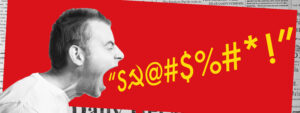This weekend the Campanil staff had the opportunity to attend the Associated Collegiate Press (ACP) conference in Los Angeles. During the conference, hundreds of college newspapers from New York to Hawaii came together to both celebrate and learn the latest in what it means to be a professional in the fluctuating world of journalism.
The conference offered a long list of “how-to-make-it- as- a- journalist” seminars. Each panel alleged to turn me into a lean mean hyper-linking, Facebooking, Twittering, multi platform, iPhone-armed, 24-hour-a-day machine. As I sat through these endless sessions—mentally tweaking my resume, scrutinizing my skill set — something felt wrong.
Everyone seemed to want to tell me HOW to be a journalist “these days,” aka during the fall of print journalism and the rise of the blog. Yes, yes, I understand (ala Madonna) we are living in a digital world and therefore I need to become a digital girl, yet what the sessions failed to explain clearly was the question of WHY? In this highly competitive ever shrinking underfunded field, where job prospects are dwindling and peoples attitudes towards me when I identify myself as a journalist are politely weary at best, why? Why should I even bother trying?
It’s easy to see why people are nervous to trust the press. Newspapers are thinning, truly independent voices in journalism are slowly disappearing and corporate media is in a mad race to maintain not just relevance in the sea of voices available through new media—but remain profitable via dominance. It feels like sometimes their only clear goal is to get information (any information) out—out first and out fast. Period.
As an aspiring journalist training to compete in this race I have to pause (yes stop to think for a moment, and promise to tweet later) and wonder if the modes and means propelling the industry are causing everyone to lose sight of the point? And more importantly, as a student learning my way through it all, is the current guard setting the right example?
Before coming to Mills College I worked as a Substance Abuse Counselor primarily with clients sentenced through the criminal justice system. These clients were not saints, and many of them had done things aside from their drug abuse, or under the influence of it, that were illegal. None of my clients claimed to be innocent, but who they were was complex. They had painful and complicated lives both outside and within prison. Many of them suffered abuses that were criminal themselves and no one was telling their side of the story. Worse , it seemed the policies surrounding the system did little to aid in any kind of real rehabilitation.
I wanted to help. I wanted to tell their stories and I knew in order to do that I had to do something outside of the system. So I quit being a counselor, went back to college, and my first semester at Mills I enrolled in Journalism I.
Those who have witnessed injustice up close, those who have watched, helpless, the violent consequence of unchecked powers have no choice but to be journalists.
All the multimedia/platform skills in the world weren’t going to make me a good journalist. More user friendly and a more marketable job candidate, sure—but ultimately what I realized was that for me, the key to good journalism is intention and integrity behind it.
I am not suggesting that journalists working today have bad intentions, the opposite is generally true (it is a demanding and far from lucrative field) but what I worry about is that the break neck pressures of meeting this new “deadline on demand” style of insta-journalism is putting the more thoughtful and analytical elements of the field into jeopardy.
We need to take more time. We need to clarify our intentions. Otherwise, our words feel empty.
As a student journalist and Editor-in-Chief of the Campanil it compels me to remind myself why—what the intention of our newspaper really is. Simply, my biggest hope is to serve the community, to bear witness to and create a dialogue on campus—to give a voice to the students and faculty.
The Campanil is also a place for administration to reach out to that community; it is a space where both sides are hopefully given the opportunity to articulate and be held accountable or celebrated for their actions and policies.
As student journalists, we may not always get it perfect — reality is never simple, the truth is always complicated. But we take the time out of our lives and classes to try and get the story. We take the time each week to learn about our community and with each paper we take the time to try and tell that story the best we can.
But I worry.
I worry about the path being paved for us in the industry right now. I worry about the standards being set. I worry about the growing hostility towards the press. I see it with large news organizations. I see it here on campus. I worry what happens when the public no longer trusts journalists to tell their stories. I worry that in the haste to maintain a competitive edge, to get the news out there fastest and flashiest, the future of my industry is being jeopardized. I worry the integrity and trust I am trying to build with the community is being traded in for the instant gratification of Facebook feedback.
I worry I will feel forced to tweet about the moment instead of listen. I worry it is forcing me to juggle my iPhone, Flip camera and laptop, instead of watch. Most importantly, I worry that with all this “platform” juggling, I will miss the point.


